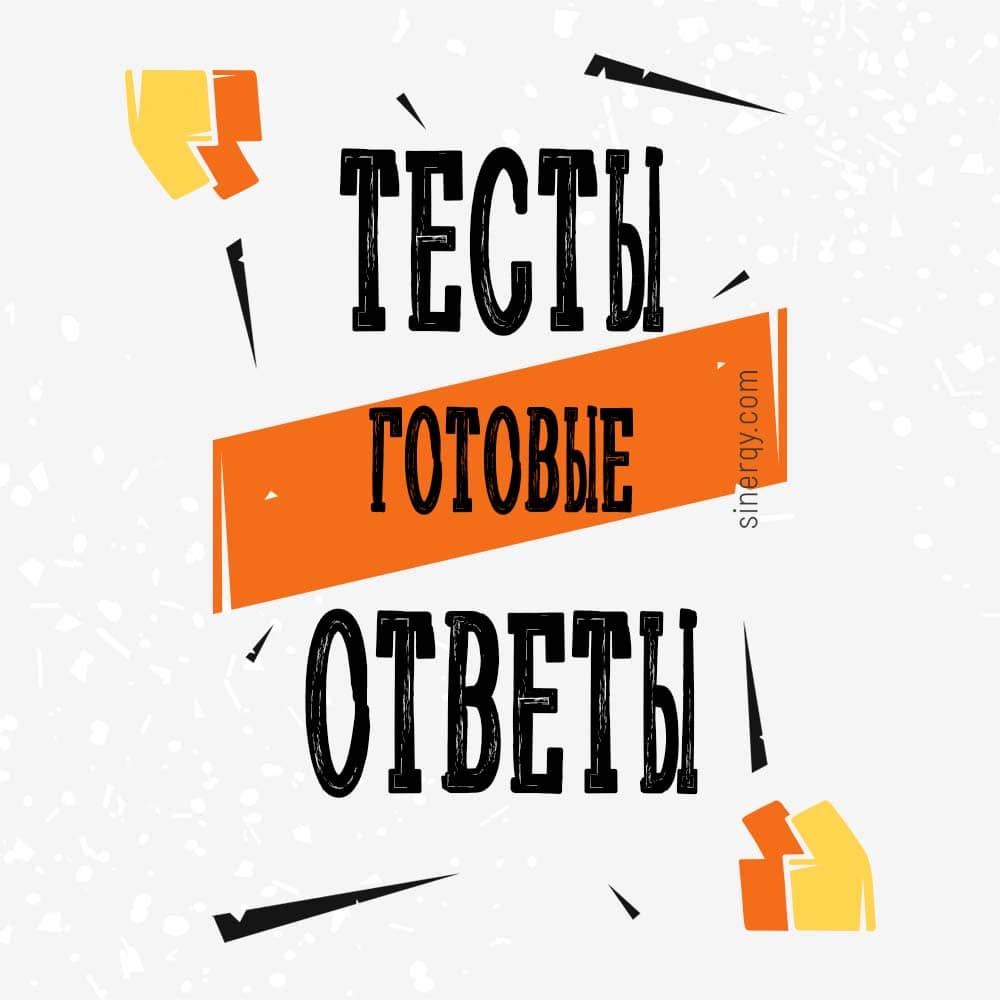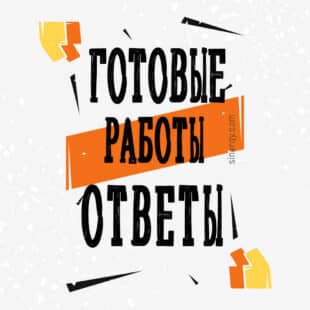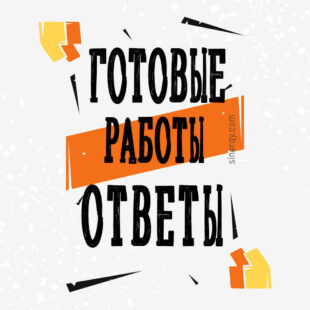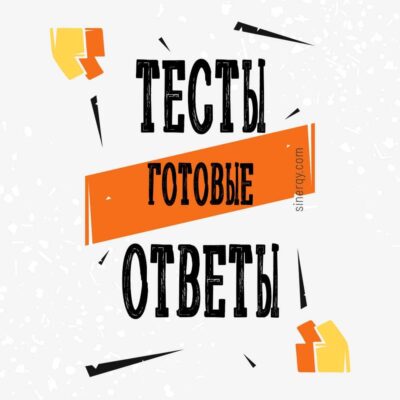Meghan is an interior designer. A supplier installs a gondola incorrectly and it breaks a month later.
Who must fix the problem? |
Common-law legal systems place great value on deciding cases according to consistent principled rules, so that similar facts will yield similar and predictable outcomes, and observance of precedent is the mechanism by which that goal is attained.
What is the guiding principle of Common-law legal systems? What is the idea behind? |
Ben, who is 19 years old, applies for a job as a clerk in a goods store. The store manager is impressed with Ben’s speaking skills and says that he would like to hire him, subject to reference checks. Later, the manager calls Ben and says that he will not be hired. On checking his references with a former employer, the manager found out that Ben was convicted of careless driving.
Has the store manager violated Ben’s human rights by refusing to hire him? |
Stacy and several of her friends play in a women’s hockey league at the skate rink. Quite frequently, the male rink attendants don’t give them their full allotted ice time. The attendants make jokes on the women. Stacy thinks that their rights are violated. She has even complained but the manager has done nothing and supported men.
Have the rink attendants violated the young women’s human rights? |
Imagine that in 2024 you will be president of your country.
What branch will you represent? What will be your powers? |
The constitution is the main legal act of the State. It lays down the formation of a system of society and establishes the state structure, the order and justification of the idea of representatives, executive and judicial authorities, the electoral system, the rights and obligations of the state, society and citizens.
Can it be argued that any constitution is the constitution of a state or society exclusively? |
The defendant had voluntarily consumed drugs to calm his nerves. Under the influence of the drugs, he had started shooting in the cottage in which he had been living, but claimed to have been unable to remember anything after taking the drugs. The defendant was convicted of causing criminal damage being reckless as to whether life would be endangered, following the trial judge’s direction to the jury that self-induced intoxication was not available by way of defence to a basic intent crime. The defendant appealed.
What is the Court’s decision? |
The defendant decided to kill his sister. He bought a knife and a bottle of strong alcohol which he drank to give himself “Dutch Courage”. Then he killed his sister. He subsequently claimed that he was so drunk that he did not know what he was doing, or possibly even that the drink had brought on a latent psychopathic state so that he was insane at the time of the killing.
What was the Court’s decision? |
|
The term “civil law” derives from the … |
‘Ius civile’ applied to … citizens |
Legal scholars have adapted the principles of ancient Roman law in the Corpus … to contemporary needs |
Under the influence of Roman law, medieval scholars of Catholic church law, or canon law, … |
By the late Middle Ages civil and canon laws were taught at most universities and formed the basis of a shared body of … thought common to most of Europe |
The birth and evolution of the medieval … law tradition based on Roman law was thus integral to European legal development |
The role of the local custom as a source of law became increasingly important because … (choose 2 correct answers) |
The source of religious law is the …, legislating through the prophets |
Law is made up of formulated legislation, including constitutions, statutes, treaties, … and codes; rules of law announced by the courts in deciding cases |
… law is made by human beings, and one of its most famous examples – the US Constitution – begins with the words “We, the people…” |
… laws are perceived to be eternal and immutable, while secular rules can be changed by their makers |
In a religious legal … disputes are usually adjudicated by an officer of that religion, so the same person is both judge and priest |
… law is also referred to as “primitive law”, “unwritten law”, “indigenous law”, and “folk law” |
… are penalties or other means of enforcement used to provide incentives for obedience with the law, or with rules and regulations |
It should be noted that there are three main sources of the law in the world:
legislation, … or decisions of the higher court or custom |
Though the … often brings the formal charges, investigates the matter, and decides on the case, he or she works within a framework established by a comprehensive, codified set of laws |
Match the given countries to the corresponding law systems: |
Match the words with their synonyms: |
Arrange the milestone documents chronologically: |
Arrange the milestone documents chronologically: |
The Human Rights Act 1998 came into force in … |
Human Rights are … |
The United Nations (UN) defines discrimination as behavior that includes any distinction, exclusion, restriction or preference based on … (choose 2 correct answers) |
The United Nations has adopted … treaties in addition to the covenants in the International Bill of Human Rights |
The dramatic changes in Eastern Europe, Africa, and Latin America since 1989 have powerfully demonstrated a surge in demand for respect of … rights |
Amnesty International is a global movement of more than seven million people who are independent of any type of political ideology, religion or economic interest and who take … personally |
It is not correct that … belongs to the core activities of Amnesty International |
Civil Rights Defenders was established in … |
Human Rights Watch has its headquarters in … |
Human Rights Without … (HRWF) is an international non-profit organization that promotes respect for human rights around the globe and advocates for democracy, the rule of law and social justice |
An international non-governmental organization focused on human rights, with its headquarters in the United Kingdom, is … International |
An international nongovernmental organization that investigates and documents human rights violations and advocates for policies to prevent such abuses is Human Rights … |
The term “law” denotes the body of rules and regulations that is the product of the … process |
Originally … law was used by the merchants in Europe |
An international organization that uses the medical and scientific tools to attract attention to severe human rights abuses and mass atrocities is … for Human Rights |
Through …, the Civil Rights Defenders provides expertise and support to human rights defenders while holding those in power accountable for their actions |
Arrange the documents chronologically: |
Match the words with their synonyms: |
Arrange the documents chronologically: |
Match the following acts with their purposes: |
The Constitution of the Russian Federation was adopted in … |
The adoption of the Constitution was so important to Russia because … |
The word “constitution” in Latin means … |
A constitution guarantees … |
Executive branch is represented by the … in Russia |
The State Duma carries the main responsibility for … federal laws |
Unlike most modern states, … does not have a codified constitution but an unwritten one formed of Acts of Parliament, court judgments and conventions |
The theoretical foundations of modern … were laid down in the great works on the social contract |
According to the Constitution there are 3 branches: …, executive and judiciary |
The legislature is the Federal … of Russia, which consists of two chambers: the State Duma (the lower house) and the Federation Council (the upper house) |
From a comparative perspective, British people have what is known as an ‘… constitution’, although some prefer to describe it as ‘uncodified’ |
British people certainly say that they have a …, but it is one that exists in an abstract sense, comprising a host of diverse laws, practices and conventions that have evolved over a long period of time |
Another characteristic of the unwritten constitution is the special significance of political customs known as ‘…’, which oil the wheels of the relationship between the ancient institutions of state |
Constitution guarantees citizens certain substantive and procedural … to which they deemed themselves entitled as subjects of the British crown under the ancient English common law |
… rests upon popular participation in government, constitutionalism upon disclosure of and openness about the affairs of government |
In US law, a … is a crime punishable by a term of imprisonment of not less than one year or by the death penalty |
Arrange the documents chronologically: |
Match the words with the definitions: |
Arrange the documents chronologically (consider the date of their adoption): |
Match the words with the synonyms: |
Drug abuse and … are associated with drug-related crimes |
In certain cases, drug use can be connected to crimes that only relate to drugs in an … way |
Distributing a drug is … |
… is a drug-defined crime (chose 2 correct answers) |
There are those who feel that drug crime … is a serious drain on resources, and they worry that drug laws can create more crime than they stop by generating a black market |
If a dealer from Austria sells drugs to a buyer from the USA, it is called drug … |
Drug use is regarded as a real problem in many parts of the world, although the extent of the issue varies greatly depending on culture, access, and … |
Many countries are affected by … addiction today |
Organized … activities are activities such as money laundering and political corruption, in support of the drug trade |
In certain cases, drug use can be connected to … that only relate to drugs in an indirect way |
…crimes come in several different varieties, and the connections that exist between … and crime can sometimes be very nuanced and complex |
Drug … is a global illicit trade involving the cultivation, manufacture, distribution and sale of substances which are subject to drug prohibition laws |
According to the statistics there are nearly 500,000 drugs … registered in Russia; however, experts suggest that the number is at least six times greater |
According to researchers of scientists every 10th family has met the problem of drug … |
Complex Measures to withstand abuse and illegal drugs …was worked out and successfully implemented by central and local authorities |
The most widespread classification of drugs is according to the way they … the body, how they are used or where they are used |
Match the words with the definitions: |
Match the words with the definitions: |
Arrange the following drug control treaties chronologically according to the date of their entry in force: |
Arrange the first drug regulations chronologically according to the date of their entry in force: |
It is not correct that … factors are contributing to the difficulty in measuring drug-crime relationships |
A … is a type of offense punishable under criminal law by less than 12 months in jail |
Under “biography” is meant each region of distribution of narcotic drugs has its own … |
According to the specialists, the current level of drug addiction is … |
The general trend concerning the narcotic drugs is that the main indicators of mortality fall to … people |
There is a complex interconnection among drugs, alcohol, violence, and … behavior |
Drug-related crimes consist of crimes to possess, …, or distribute drugs classified as having a potential for abuse |
It’s obvious that drug … and drinking can also lead to violent behavior that is not reported and never makes it into the criminal justice system |
In case people use chemicals or distribute them, they might be prosecuted by the government and sent to … |
Medications or pharmaceuticals are also … and are regulated differently dependent on their level of health risk |
The first international treaty to control substances was adopted at the Brussels Conference in … in the context of the regulations against slave trade |
One of the most significant acts in the area of drug trafficking is the UN Convention against Illicit Traffic in Narcotic Drugs and Psychotropic Substances concluded at … in 1988. |
The most effective anti-drug strategy that includes monitoring, detection and sorting, pursuit and apprehension is … |
Match the words with their synonyms: |
Arrange the following drug control treaties chronologically according to the date of their entry in force: |
Study the following case:
The defendant, having voluntarily consumed drugs, had the illusion of descending to the centre of the earth and being attacked by snakes. In his attempt to fight off these reptiles he struck the victim two blows on the head causing injuries to her brain. He claimed to have had no knowledge of what he was doing and no intention to harm her.
What was the court’s decision? |
The Constitution is … |
The following types of constitutions are distinguished: … |
States that have a written … may also have a body of traditional or customary practices that may or may not be considered to be of constitutional standing |
… regarded the mixed constitution as the best arrangement of offices in the polis |
Aristotle called people … |
Roman law generally recognized … |
The Stoics argued, all humans are endowed by nature with a spark of … by means of which they can perceive a universal natural law that governs all the world and can bring their behaviour into harmony with it |
Roman law added to Aristotelian notions of constitutionalism … (choose 2 correct answers) |
The Romans conceived of the all-encompassing … law of nature as the eternal framework to which constitutions, laws, and policies should conform – the constitution of the universe |
English philosophers Thomas Hobbes and John Locke in the 17th century and the French philosopher Jean-Jacques Rousseau in the 18th contributed to the theory of … contract |
A … is a direct vote by the electorate on a proposal, law, or political issue |
The basic law of the state, which describes the structures and processes of government and the fundamental rights of citizens in a higher law that cannot be unilaterally changed by an ordinary legislative act is called the … |
Social … theory says that people live together in society in accordance with an agreement that establishes moral and political rules of behavior |
A formal and organized choice by vote of a person for a political office or other position is called an … |
A … government is one whose powers have been adapted to the interests of its people and to the maintenance of individual liberty |
A constitutional … is a government in which the people vote for representatives or laws, and in which the laws are authorized and constrained by a constitution |
The … of the United States is the supreme law of the United States of America |
Arrange modern constitutions chronologically (consider the date of their adoption): |
Match the words with the synonyms: |
The Constitution is the supreme law of the country. Imagine if you were asked to create you student groups’ Constitution.
What would it contain? |
The belief that all human beings possess rights and freedoms, simply because they are human, was spread … |
The roots of rights and freedoms lie … |
The Great Charter was so important because it laid out the principle that everybody, …, was subject to the law |
The first English Bill of Rights was established in … |
The first English Bill of Rights contained such rights as … (choose 2 correct answers) |
The United States Constitution of 1791 contained a … that remains in effect today |
Efforts in the 19th century to prohibit the … and to limit the horrors of war are prime examples to establish human rights |
The role of the International Labor Organization was to … |
For the first time in history, the issue of the protection of the minorities was raised by … |
The Universal … of Human Rights is the most universal human rights document in existence, delineating the thirty fundamental rights that form the basis for a democratic society |
The Charter of the United Nations established six principal bodies, including the General …, the Security Council, the International Court of Justice, and in relation to human rights, an Economic and Social Council (ECOSOC) |
The idea of human rights emerged stronger after the … World War |
On October 24, 1945, in the aftermath of World War II, the … came into being as an intergovernmental organization, with the purpose of saving future generations from the devastation of international conflict |
The Universal Declaration of Human Rights was formally adopted by the … on December 10, 1948 |
According to the Guinness Book of World Records, the Universal Declaration of … is the most translated document in the world |
The basic rights and freedoms that belong to every person in the world, from birth until death are called … rights |
Rules of law that aspire to protect all people everywhere from severe political, legal, and social abuses are called human … |
The UN Commission on Human Rights proceeded a treaty – the International … on Civil and Political Rights (ICCPR) including its optional protocol |
Match the following acts with their purposes: |
Arrange the documents chronologically: |
Stacy and several Black friends went to a café after school. They were having their lunch and laughing. Things started to change for the worse between their group and several White students sitting at another table. Food was thrown and the groups exchanged angry remarks. When the restaurant staff asked Stacy and her friends to leave the café, they felt angry and discriminated against.
Did the café staff violate the group’s human rights? Advise the café staff |
… is Statute Law |
Precedent is basically … |
Religion and language are two examples of … conditions that influence international business |
The common law legal system is one which revolves around the principle of … which means ‘let the decision stand’ |
The rule of … is the political philosophy that all citizens and institutions within a country, state, or community are accountable to |
… of law are the materials and processes out of which law is developed |
The concept of crime is considered in … law |
It is not correct that laws can come from such sources as … |
…, statutes, case law and regulations are issued by government institutions |
What is important to note is that the four major legal systems of the world today consist of civil law, common law, … law and religious law |
The … law theory argues that some rules objectively existing in the nature also are source of law, while legal positivism argues that only the rules made by sovereignty can be the source of law |
… law is based on precedents, that is the judicial decisions from previous cases, rather than law based on constitutions, statutes, or regulations |
The process or product of enrolling, enacting, or promulgating law by a legislature, parliament, or analogous governing body is called … |
The established pattern of behavior that can be objectively verified within a particular social setting is called … |
The body of law created by judges and similar quasi-judicial tribunals by virtue of being stated in written opinions is … law |
The branch of government that has the power to enforce laws in the country is the … |
Match the given countries to the corresponding law systems: |
Arrange the following legal acts chronologically: |
Sources of law are the origins of laws, the binding rules that enable any state to govern its territory. The term “source of law” may sometimes refer to the sovereign or to the seat of power from which the law derives its validity.
Do sources of law vary in legal systems? What is the hierarchy of the sources of law? What are the categories of these sources? Choose the correct answer. |






